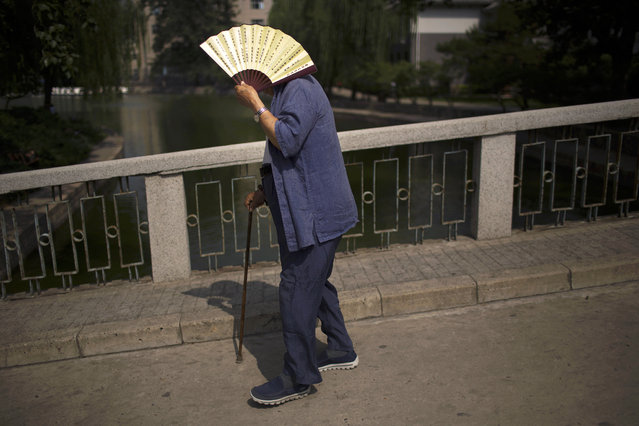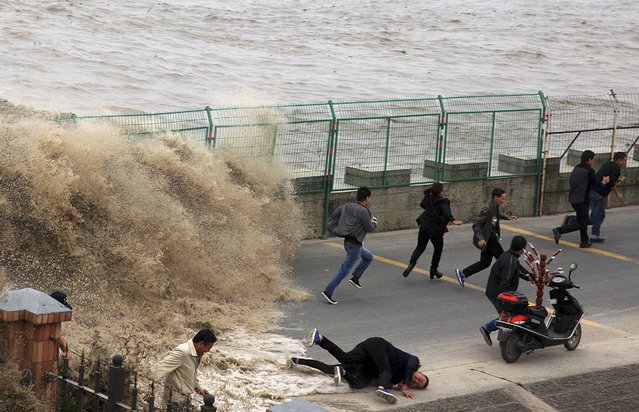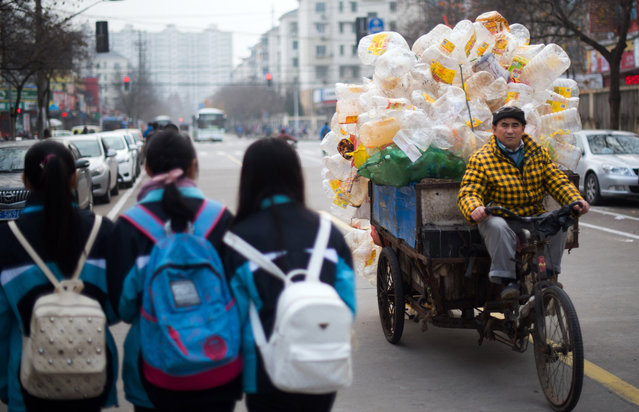
An elderly man uses a fan to shade himself from the sun as he walks in a public park in Beijing, Tuesday, June 7, 2016. Thursday marks the Duanwu Festival, a public holiday in China celebrated with outdoor activities including dragon boat races. (Photo by Mark Schiefelbein/AP Photo)
08 Jun 2016 10:13:00,post received
0 comments







